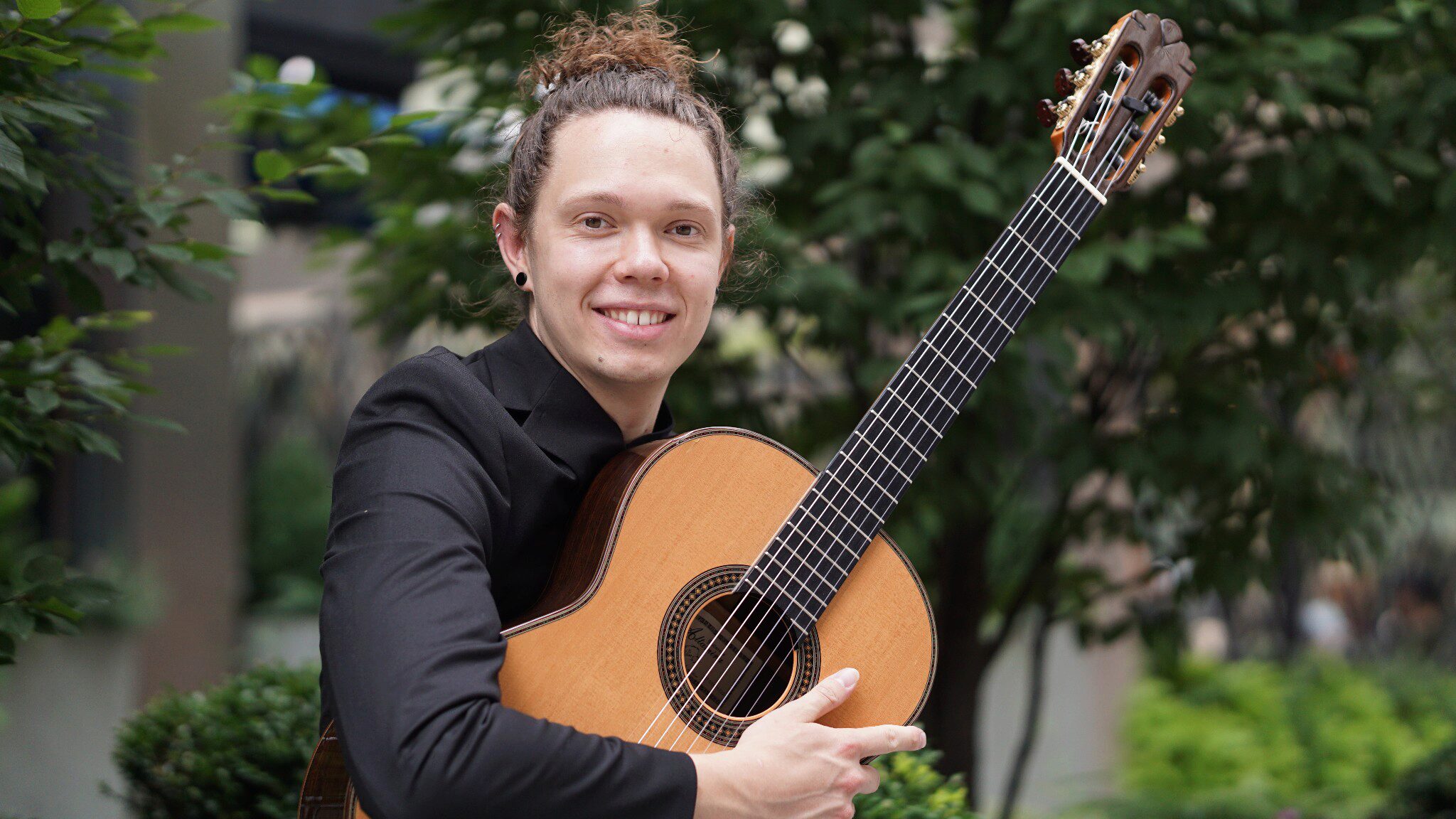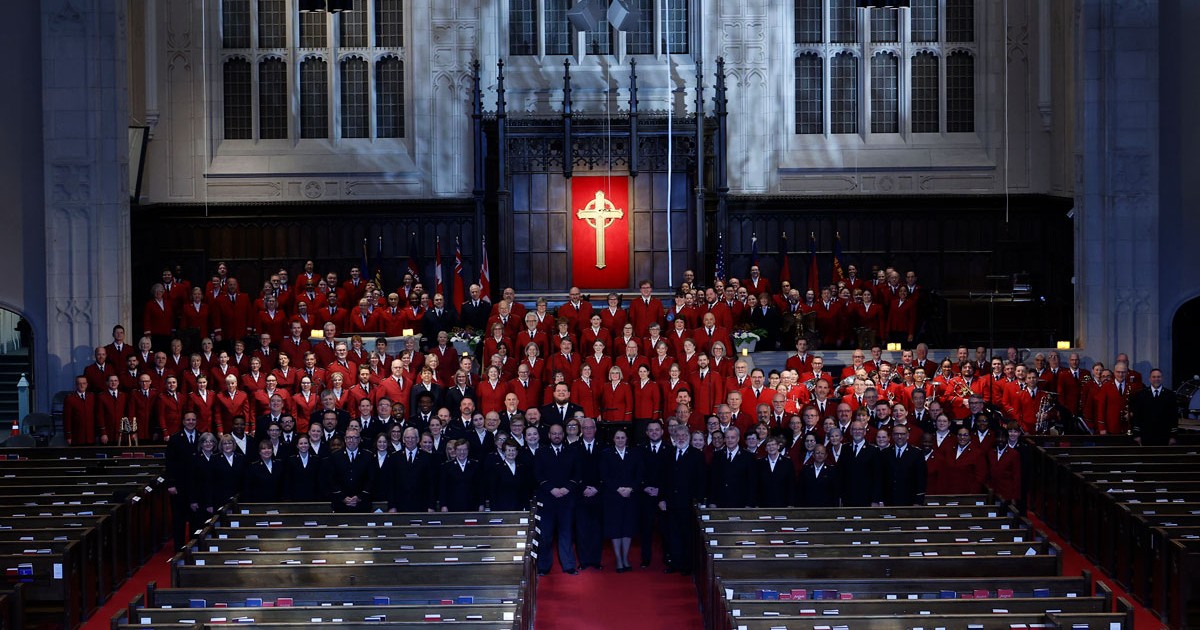We met at a Tim Hortons on a winter's Friday afternoon. Our coffee purchased, I asked my Muslim friend for his thoughts on a recent controversy within the Christian community in the United States. A professor at Wheaton College, an evangelical Christian institution, decided to wear the hijab as a mark of solidarity with Muslims, who were being targeted by presidential candidates. This created tension between the professor and the college, such that they eventually agreed to part ways.
As we sipped our coffee, I said, “The question is being raised within the Christian church: Do we worship the same God as Muslims?”
Rather than starting with the phrase, “same God,” I asked what was important for him in worship. There was no hesitation: submission is the heart of Islamic worship. Praise, gratitude and intercession may come. But submission is the important element.
Christians could learn from this. I often wonder if we aren't missing something important when we come into our worship casually, with coffee cups in our hands. Then again, it's hard to imagine a boisterous brass band playing a jazzy arrangement of Joyful, Joyful in a mosque.
There are differences, but we both agree that worship impacts all of life. It has social, political, even ecological implications. Our worship acknowledges that there is Someone beyond ourselves, even beyond our capacity to grasp. This sense of mystery leads to worship.
Our conversation moved to “the God we worship.” It's true, there are parts of the world where Christians use the word “Allah” when speaking of God. Is this the “same God”? I acknowledge that I have difficulty recognizing the portrayal of “God” touted by some presidential candidates. I am also aware that “Allah” (which means “the Divinity”) is not understood consistently within Islam. But the same God? Is this even the best way of framing the question? If I see another Honda Civic driving along the road, does this mean they are driving the same car as me? Not really. Perhaps we're looking for what is held in common, not what is identical.
One phrase that points to commonality is the “oneness of God.” The fundamental conviction of Islam as stated in the Qur'an is that “There is no God but the one God.” The Qur'an also instructs Muslims to say to Christians, “Our God and your God is one.” This is important. Both faiths agree that the universe is purposeful and does not have a plurality of gods. In common with our Jewish friends, we acknowledge God's oneness. The Creator is utterly distinct from creation. But the “oneness of God” also has to do with God's character. God is faithful, consistent, a God of integrity. One.
My friend acknowledged that while the oneness of God is something we share in common, the Christian view of God as trinitarian is a major difference. For a Muslim, worship that includes worship of Jesus would violate God's oneness. It doesn't for the Christian. God's oneness embraces God's diversity: Father, Son and Holy Spirit. As a Christian, I worship God through my understanding of the life, death and Resurrection of Jesus. My understanding of God is especially shaped by the cross. In the words of Michael Gorman, a biblical studies professor, “Christ crucified both reveals and redefines God … God is cruciform.”
We finished our coffee; it was time to go. My Muslim friend and I agreed that there is much we hold in common when it comes to our understanding of God. Our sacred texts, the Bible and the Qur'an, instruct us to “love God and our neighbour.” There are ways to show solidarity while respecting the integrity of each other's faith. Two years ago he attended the funeral of an Anglican bishop, who was one of our colleagues on the Manitoba Multifaith Council. My friend showed his solidarity by joining this deeply Christian service of remembrance. About the same time, a Muslim family lost their lives in a tragic fire. A public service of remembrance was held in the mosque. I attended, wearing my Salvation Army uniform, and was warmly welcomed. Personal presence in difficult moments can express solidarity.
There is much we hold in common, and there are important differences. Is there an understanding of God that lies beyond this conversation? Most certainly. But that calls for another cup of coffee at Tim Hortons, and much more thinking on my part.
Major Ray Harris is a retired Salvation Army officer. His book, Convictions Matter, is available at is available at store.salvationarmy.ca, 416-422-6100, orderdesk@can.salvationarmy.org. For the e-book, visit amazon.ca.
Salvationist.ca Commenting Policy: All comments on Salvationist.ca are moderated. We expect our readers to be respectful and courteous in their discussions, as if they were having a face-to-face conversation. Salvationist.ca reserves the right not to publish any comments that contain the following: vulgarity, obscenity, hate speech, threats, personal attacks, insults or defamatory statements.
As we sipped our coffee, I said, “The question is being raised within the Christian church: Do we worship the same God as Muslims?”
Rather than starting with the phrase, “same God,” I asked what was important for him in worship. There was no hesitation: submission is the heart of Islamic worship. Praise, gratitude and intercession may come. But submission is the important element.
Christians could learn from this. I often wonder if we aren't missing something important when we come into our worship casually, with coffee cups in our hands. Then again, it's hard to imagine a boisterous brass band playing a jazzy arrangement of Joyful, Joyful in a mosque.
There are differences, but we both agree that worship impacts all of life. It has social, political, even ecological implications. Our worship acknowledges that there is Someone beyond ourselves, even beyond our capacity to grasp. This sense of mystery leads to worship.
Our conversation moved to “the God we worship.” It's true, there are parts of the world where Christians use the word “Allah” when speaking of God. Is this the “same God”? I acknowledge that I have difficulty recognizing the portrayal of “God” touted by some presidential candidates. I am also aware that “Allah” (which means “the Divinity”) is not understood consistently within Islam. But the same God? Is this even the best way of framing the question? If I see another Honda Civic driving along the road, does this mean they are driving the same car as me? Not really. Perhaps we're looking for what is held in common, not what is identical.
There are ways to show solidarity while respecting the integrity of each other's faith
One phrase that points to commonality is the “oneness of God.” The fundamental conviction of Islam as stated in the Qur'an is that “There is no God but the one God.” The Qur'an also instructs Muslims to say to Christians, “Our God and your God is one.” This is important. Both faiths agree that the universe is purposeful and does not have a plurality of gods. In common with our Jewish friends, we acknowledge God's oneness. The Creator is utterly distinct from creation. But the “oneness of God” also has to do with God's character. God is faithful, consistent, a God of integrity. One.
My friend acknowledged that while the oneness of God is something we share in common, the Christian view of God as trinitarian is a major difference. For a Muslim, worship that includes worship of Jesus would violate God's oneness. It doesn't for the Christian. God's oneness embraces God's diversity: Father, Son and Holy Spirit. As a Christian, I worship God through my understanding of the life, death and Resurrection of Jesus. My understanding of God is especially shaped by the cross. In the words of Michael Gorman, a biblical studies professor, “Christ crucified both reveals and redefines God … God is cruciform.”
We finished our coffee; it was time to go. My Muslim friend and I agreed that there is much we hold in common when it comes to our understanding of God. Our sacred texts, the Bible and the Qur'an, instruct us to “love God and our neighbour.” There are ways to show solidarity while respecting the integrity of each other's faith. Two years ago he attended the funeral of an Anglican bishop, who was one of our colleagues on the Manitoba Multifaith Council. My friend showed his solidarity by joining this deeply Christian service of remembrance. About the same time, a Muslim family lost their lives in a tragic fire. A public service of remembrance was held in the mosque. I attended, wearing my Salvation Army uniform, and was warmly welcomed. Personal presence in difficult moments can express solidarity.
There is much we hold in common, and there are important differences. Is there an understanding of God that lies beyond this conversation? Most certainly. But that calls for another cup of coffee at Tim Hortons, and much more thinking on my part.
Major Ray Harris is a retired Salvation Army officer. His book, Convictions Matter, is available at is available at store.salvationarmy.ca, 416-422-6100, orderdesk@can.salvationarmy.org. For the e-book, visit amazon.ca.
***
Salvationist.ca Commenting Policy: All comments on Salvationist.ca are moderated. We expect our readers to be respectful and courteous in their discussions, as if they were having a face-to-face conversation. Salvationist.ca reserves the right not to publish any comments that contain the following: vulgarity, obscenity, hate speech, threats, personal attacks, insults or defamatory statements.










Comment
On Friday, September 23, 2016, Alonzo Twyne said:
Leave a Comment